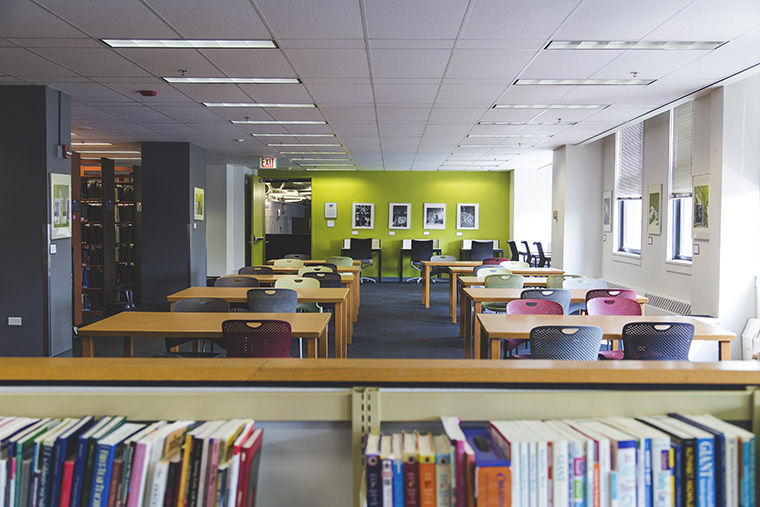Columbia joins Center for Research Libraries
The Center for Research Libraries offers resources that libraries usually do not offer, said Virignia Kerr, spokeswoman for CRL.
September 8, 2015
Columbia’s library, 624 S. Michigan Ave., is adding “one more jewel in the crown” of its resources with a membership in the Center for Research Libraries starting in the Fall 2015 Semester, according to Library Dean Jan Chindlund.
CRL—a consortium of university, college and independent libraries that curates and maintains a collection of primary source materials—will complement more than 163 electronic databases and hundreds of thousands of print, electronic and physical resources already mad available through the library, according to Rebecca Courington, the library’s electronic resource coordinator.
“The idea for joining was in the back of our minds because we knew about it for a long time,” Chindlund said. “We posed the question to the provost [during the Spring 2015 Semester], and he was excited about it.”
A survey of faculty members during the semester showed an interest in joining the CRL, Chindlund said.
As a member institution of CRL, students and faculty will have access to high-quality specialized material, said Virginia Kerr, CRL’s head of Communications and Membership Development.
The material includes the largest collection of circulating newspapers in North America, more than 800,000 foreign doctoral dissertations, primary and legal documents from around the world and area studies materials, according to CRL’s website.
“We extend the resources of the individual library,” Kerr said. “CRL provides the specialized resources that [individual libraries] couldn’t justify having on site.”
The membership also includes access to resources from the Linda Hall Library for Science, Engineering & Technology Information for the World, based in Kansas City, Missouri, Chindlund said.
Gaining access to materials from the Linda Hall Library will be especially useful for faculty in the Science & Mathematics Department, said Dennis McGuire, head of technical services and collection development at the library.
“We collect in science and math because we offer classes,” McGuire said. “It’s not an in-depth collection by any means, so this really enhances the collection.”
If students or faculty members want to obtain research materials from CRL, they can search through its online collection, find the material they want and download a copy or have it sent to the college’s library through an interlibrary loan, according to McGuire.
Additionally, faculty and students will be able to suggest materials for CRL to purchase. Each person can request up to $2,000 worth of materials each year if the material adds to an already existing collection at CRL, McGuire said.
Resources available through CRL can be used by students and faculty conducting research projects or needing inspiration or reference material for more general projects, McGuire said, adding that use of CRL’s resources could also be incorporated into artistic projects.
“Even if they don’t have a research assignment, the ability to come here and be inspired by people who have done beautiful or exceptional work in the past is always here and ready for students to become influenced by,” Chindlund said.
Institutions that are interested in becoming members of CRL are required pay a cost-share, Kerr said.
“Because we are considered an extension of the individual library’s resources, our membership fees are considered cost-shares contributing to the cost of running our organization,” Kerr said.
Despite collegewide budget cuts, the library was able to absorb this cost into its budget, Chindlund said.
“We are about even with the last couple years [with our budget],” Chindlund said.
The library did eliminate redundancies in the databases they were purchasing to have some extra money for this membership, according to McGuire.
“The majority of [the now-eliminated databases] was overlapping so we were able to jettison one of them and still have access to materials that would be needed, and have a little bit of extra money that we could apply toward a membership,” McGuire said.








